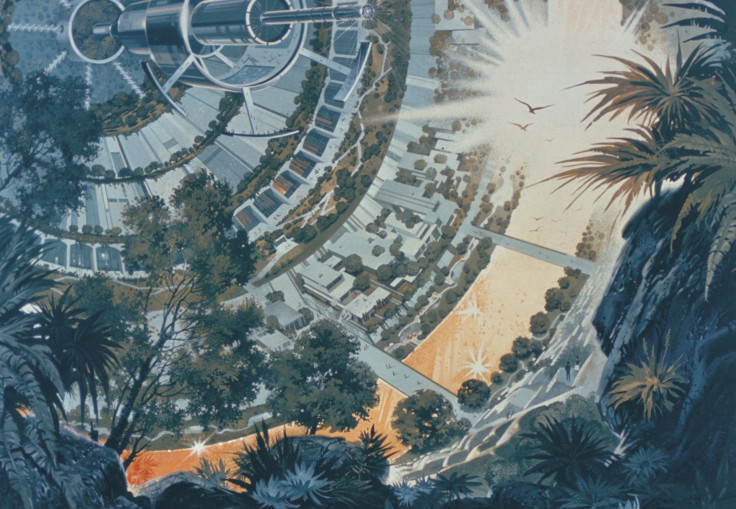Human Space Colony On Mars Would Be Awful Idea, ESA Chief Says

Living on Mars would not be as rad as people think. The head of the European Space Agency himself doesn’t seem too keen on becoming a Martian immigrant, based on what he said at this week's U.K. Space Conference in Manchester, England.
“If you go to Mars … you cannot go outside for a small walk,” ESA director general Johann-Dietrich Wörner told the Times Wednesday. “Always you have to be sheltered and covered, but you cannot even bring your dog to the next tree. … Mars is not nice.”
Read: Humans in a Mars Colony Would Be a Different Race
During a conference that also featured speakers like former International Space Station astronaut Tim Peake, astrophysics professors and space company founders, Wörner emphasized the difference between visiting a planet and inhabiting one. “Humans will fly to Mars, for sure. Humans will fly to the moon again, for sure. But colonization — that always sounds to me as though we should leave the Earth. And I hope that we will not leave the Earth in the next 3 billion years, but that humans will find a way to secure life on Earth.”
Opening of the @ukspace2017 in #Manchester today (T) pic.twitter.com/uhTiWcpEPf
The idea of securing life on Earth clashes with the words of another authority on space: Stephen Hawking. The astrophysicist, who has been known for making extreme statements and predictions about the future of humanity, is warning if humans want to survive extinction, they will have to start a space colony within the next 100 years. He says the species will not survive the next millennia on our planet.
But Wörner told the Times living on Mars or the moon would be no replacement for Earth: “This is something like, ‘We destroyed everything, so let’s go to a better place.’ But you will hardly find a better place.”
Space agencies and companies are advancing space technology, learning more about how microgravity and long trips affect the human body, how to grow crops in space and how to make space travel more sustainable. Beyond simply visiting and exploring other planets and moons, there is a push to start up a human colony somewhere, with SpaceX founder Elon Musk being one of the most vocal advocates. Mars is the most popular destination, with the moon not trailing far behind. There are also the possibilities of moons in the outer solar system and planets orbiting other stars.
But even if the technology catches up to those dreams, that doesn’t mean it will be pleasant. Wörner gave Earth’s closest neighbor, the moon, as an example: “Would you like to stay in a place where half of the month it’s dark and half of the month there’s sun? That is the moon. No. To stay for two weeks in darkness, that’s not a nice life.”
Read: Humans in a Space Colony Would Evolve into Mutants
Mars has better lighting but the other conditions are not much better. It has a thin atmosphere, after losing much of its air to outer space, so breathing outside is out of the question. With barely any atmosphere, dangerous radiation from the sun also beats down on the Red Planet.
And while temperatures have at times been as warm as a spring day, its record-low surface temperature is -190 degrees Fahrenheit. Plus it’s a dusty, rocky and dry planet.
© Copyright IBTimes 2024. All rights reserved.





















